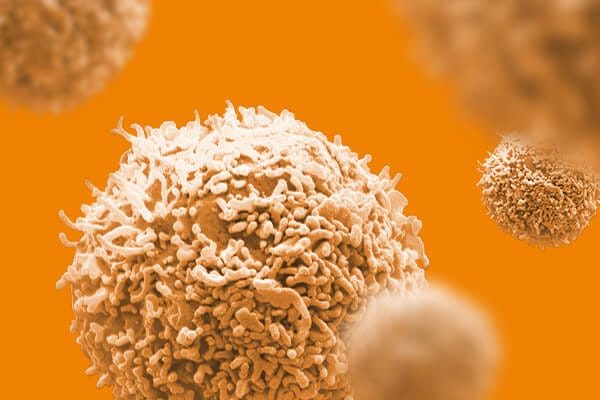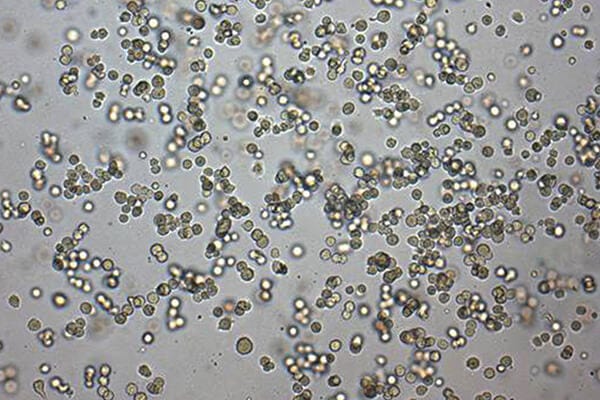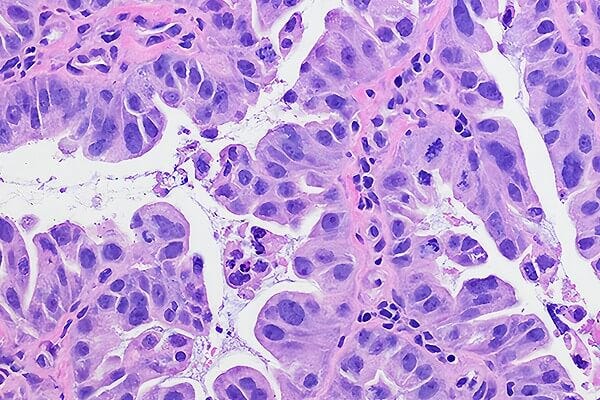Scientific Resources
-
 文献Maes C et al. (MAY 2006) The Journal of clinical investigation 116 5 1230--42
文献Maes C et al. (MAY 2006) The Journal of clinical investigation 116 5 1230--42Placental growth factor mediates mesenchymal cell development, cartilage turnover, and bone remodeling during fracture repair.
Current therapies for delayed- or nonunion bone fractures are still largely ineffective. Previous studies indicated that the VEGF homolog placental growth factor (PlGF) has a more significant role in disease than in health. Therefore we investigated the role of PlGF in a model of semi-stabilized bone fracture healing. Fracture repair in mice lacking PlGF was impaired and characterized by a massive accumulation of cartilage in the callus,reminiscent of delayed- or nonunion fractures. PlGF was required for the early recruitment of inflammatory cells and the vascularization of the fracture wound. Interestingly,however,PlGF also played a role in the subsequent stages of the repair process. Indeed in vivo and in vitro findings indicated that PlGF induced the proliferation and osteogenic differentiation of mesenchymal progenitors and stimulated cartilage turnover by particular MMPs. Later in the process,PlGF was required for the remodeling of the newly formed bone by stimulating osteoclast differentiation. As PlGF expression was increased throughout the process of bone repair and all the important cell types involved expressed its receptor VEGFR-1,the present data suggest that PlGF is required for mediating and coordinating the key aspects of fracture repair. Therefore PlGF may potentially offer therapeutic advantages for fracture repair. View Publication -
 文献Pecci A et al. (NOV 2005) Human molecular genetics 14 21 3169--78
文献Pecci A et al. (NOV 2005) Human molecular genetics 14 21 3169--78Pathogenetic mechanisms of hematological abnormalities of patients with MYH9 mutations.
Mutations of MYH9,the gene for non-muscle myosin heavy chain IIA (NMMHC-IIA),cause a complex clinical phenotype characterized by macrothrombocytopenia and granulocyte inclusion bodies,often associated with deafness,cataracts and/or glomerulonephritis. The pathogenetic mechanisms of these defects are either completely unknown or controversial. In particular,it is a matter of debate whether haploinsufficiency or a dominant-negative effect of mutant allele is responsible for hematological abnormalities. We investigated 11 patients from six pedigrees with different MYH9 mutations. We evaluated NMMHC-IIA levels in platelets and granulocytes isolated from peripheral blood and in megakaryocytes (Mks) cultured from circulating progenitors. NMMHC-IIA distribution in Mks and granulocytes was also assessed. We demonstrated that all the investigated patients had a 50% reduction of NMMHC-IIA expression in platelets and that a similar defect was present also in Mks. In subjects with R1933X and E1945X mutations,the whole NMMHC-IIA of platelets and Mks was wild-type. No NMMHC-IIA inclusions were observed at any time of Mk maturation. In granulocytes,the extent of NMMHC-IIA reduction in patients with respect to control cells was significantly greater than that measured in platelets and Mks,and we found that wild-type protein was sequestered within most of the NMMHC-IIA inclusions. Altogether these results indicate that haploinsufficiency of NMMHC-IIA in megakaryocytic lineage is the mechanism of macrothrombocytopenia consequent to MYH9 mutations,whereas in granulocytes a dominant-negative effect of mutant allele is involved in the formation of inclusion bodies. The finding that the same mutations act through different mechanisms in different cells is surprising and requires further investigation. View Publication -
 文献Deonarain R et al. (NOV 2003) Proceedings of the National Academy of Sciences of the United States of America 100 23 13453--8
文献Deonarain R et al. (NOV 2003) Proceedings of the National Academy of Sciences of the United States of America 100 23 13453--8Critical roles for IFN-beta in lymphoid development, myelopoiesis, and tumor development: links to tumor necrosis factor alpha.
We have generated mice null for IFN-beta and report the diverse consequences of IFN-beta for both the innate and adaptive arms of immunity. Despite no abnormalities in the proportional balance of CD4 and CD8 T cell populations in the peripheral blood,thymus,and spleen of IFN-beta-/- mice,activated lymph node and splenic T lymphocytes exhibit enhanced T cell proliferation and decreased tumor necrosis factor alpha production,relative to IFN-beta+/+ mice. Notably,constitutive and induced expression of tumor necrosis factor alpha is reduced in the spleen and bone marrow (BM) macrophages,respectively,of IFN-beta-/- mice. We also observe an altered splenic architecture in IFN-beta-/- mice and a reduction in resident macrophages. We identify a potential defect in B cell maturation in IFN-beta-/- mice,associated with a decrease in B220+ve/high/CD43-ve BM-derived cells and a reduction in BP-1,IgM,and CD23 expression. Circulating IgM-,Mac-1-,and Gr-1-positive cells are also substantially decreased in IFN-beta-/- mice. The decrease in the numbers of circulating macrophages and granulocytes likely reflects defective maturation of primitive BM hematopoiesis in mice,shown by the reduction of colony-forming units,granulocyte-macrophage. We proceeded to evaluate the in vivo growth of malignant cells in the IFN-beta-/- background and give evidence that Lewis lung carcinoma-specific tumor growth is more aggressive in IFN-beta-/- mice. Taken altogether,our data suggest that,in addition to the direct growth-inhibitory effects on tumor cells,IFN-beta is required during different stages of maturation in the development of the immune system. View Publication -
 文献El-Ouriaghli F et al. (NOV 2003) Blood 102 10 3786--92
文献El-Ouriaghli F et al. (NOV 2003) Blood 102 10 3786--92Clonal dominance of chronic myelogenous leukemia is associated with diminished sensitivity to the antiproliferative effects of neutrophil elastase.
Clinical observations suggest that in chronic myelogenous leukemia (CML),the Philadelphia chromosome (Ph+) clone has a growth advantage over normal hematopoiesis. Patients with CML have high levels of neutrophil elastase,which has recently been shown to antagonize the action of granulocyte-colony-stimulating factor (G-CSF) and other growth factors. We therefore compared the effect of elastase on the growth of normal and CML progenitor cells. In 10-day suspension cultures of normal or CML CD34+ cells supplemented with G-CSF,stem cell factor (SCF),and granulocyte macrophage-colony-stimulating factor (GM-CSF),CML cells had diminished sensitivity to the growth inhibitory effect of elastase. When equal numbers of CML and normal CD34+ cells were cocultured for 10 days,there was no change in the relative proportions of normal and leukemic cells (measured by fluorescence in situ hybridization [FISH] or flow cytometry). However,when elastase was added,CML cells predominated at the end of the culture period (78% vs 22% with 1 microg/mL and 80% vs 20% with 5 microg/mL elastase). CML neutrophils substituted effectively for elastase in suppressing the proliferation of normal CD34+ cells,but this effect was abrogated by serine protease inhibitors. These results suggest that elastase overproduction by the leukemic clone can change the growth environment by digesting growth factors,thereby giving advantage to Ph+ hematopoiesis. View Publication
过滤器
筛选结果
类别
- Product Information
Show More
Show Less
产品系列
- EasySep 1 项目
- MethoCult 2 项目
- StemSpan 2 项目
Show More
Show Less
细胞类型
- B 细胞 182 项目
- Cardiomyocytes 21 项目
- CD4+ 121 项目
- CD8+ 92 项目
- CHO细胞 3 项目
- Endoderm 18 项目
- Endothelial Cells 12 项目
- Epithelial Cells 29 项目
- HEK-293细胞(人胚肾293细胞) 1 项目
- Hematopoietic Cells 22 项目
- Hepatic Cells 13 项目
- HUVEC细胞(人脐静脉内皮细胞) 1 项目
- Mesenchymal Cells 18 项目
- Mesoderm 18 项目
- Neural Cells 89 项目
- NK 细胞 121 项目
- Other Subsets 21 项目
- PSC-Derived 128 项目
- PSC衍生 27 项目
- Regulatory 34 项目
- T Cells 102 项目
- T 细胞 352 项目
- 上皮细胞 106 项目
- 中胚层 1 项目
- 乳腺细胞 74 项目
- 先天性淋巴细胞 23 项目
- 全血 6 项目
- 内皮细胞 8 项目
- 内皮集落形成细胞(ECFCs) 3 项目
- 前列腺细胞 8 项目
- 单核细胞 142 项目
- 多巴胺能神经元 3 项目
- 多能干细胞 1859 项目
- 小胶质细胞 3 项目
- 巨噬细胞 25 项目
- 巨核细胞 8 项目
- 心肌细胞 15 项目
- 成骨细胞 6 项目
- 星形胶质细胞 2 项目
- 杂交瘤细胞 83 项目
- 树突状细胞(DCs) 91 项目
- 气道细胞 73 项目
- 淋巴细胞 33 项目
- 癌细胞及细胞系 130 项目
- 白细胞单采样本 12 项目
- 白血病/淋巴瘤细胞 14 项目
- 真皮细胞 2 项目
- 神经元 165 项目
- 神经干/祖细胞 420 项目
- 神经细胞 6 项目
- 粒细胞及其亚群 76 项目
- 红系细胞 9 项目
- 肌源干/祖细胞 9 项目
- 肝细胞 25 项目
- 肠道细胞 61 项目
- 肾细胞 3 项目
- 肾脏细胞 4 项目
- 肿瘤细胞 11 项目
- 胰腺细胞 12 项目
- 脂肪细胞 6 项目
- 脑肿瘤干细胞 87 项目
- 血小板 4 项目
- 血浆 16 项目
- 血管生成细胞 2 项目
- 调节性细胞 9 项目
- 软骨细胞 7 项目
- 造血干/祖细胞 874 项目
- 间充质基质细胞 13 项目
- 间充质干/祖细胞 156 项目
- 间充质细胞 1 项目
- 骨髓基质细胞 2 项目
- 骨髓瘤细胞 4 项目
- 髓系细胞 116 项目
- 鼠胚胎成纤维细胞 1 项目
- 白细胞 9 项目
- 其它细胞系 5 项目
- 红细胞 10 项目
Show More
Show Less
研究领域


 EasySep™小鼠TIL(CD45)正选试剂盒
EasySep™小鼠TIL(CD45)正选试剂盒





 沪公网安备31010102008431号
沪公网安备31010102008431号